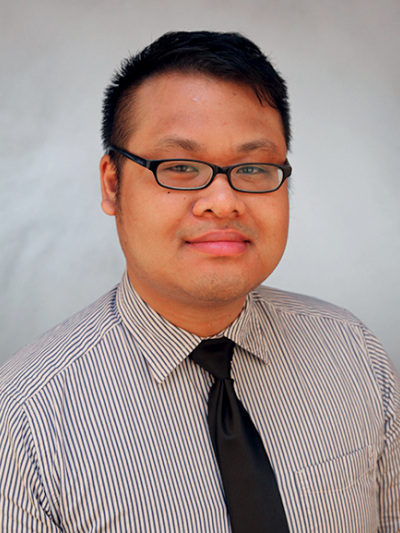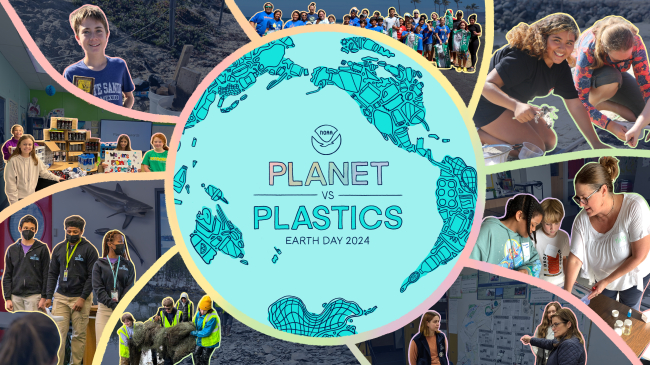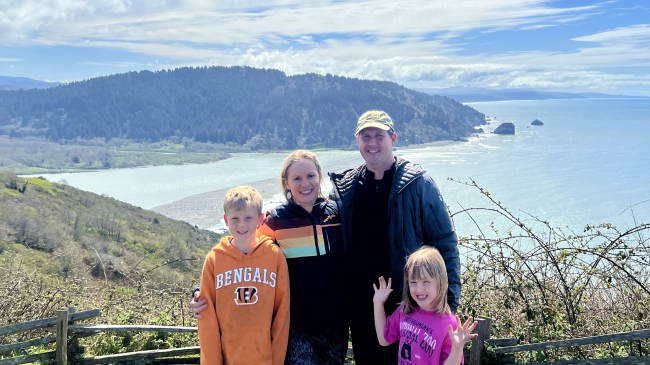By Duc Le, NOAA ECSC Ph.D. Student
The waters of the Gulf of Mexico have always played a major part in my life. Little did I know that as I grew older they would be the cornerstone of my educational pursuits and the confluence of my career and cultural identity.

My earliest experiences in the Gulf of Mexico were the scariest ones. One occurred when I almost drowned at nine years old. My siblings and I were at Panama City Beach, Florida and it was obvious that the waves were choppy and the wind was rather rough. Our water raft flipped and I was caught in a riptide. Luckily my older brother was able to pull me out of the water. For quite a while, I was afraid of the ocean believing no good could come from my interaction with the sea, but this fear would soon pass as I learned to enjoy the benefits. The sea provided me far more; including recreation, nourishment, and income for my family.
When my parents first came to America from Vietnam, they turned to what they knew most for survival and that was the sea. My father worked on commercial fishing vessels that came into Panama City’s St. Andrews Harbor and would be gone for weeks at time. My mother would work in a local seafood distribution factory that processed fresh crab, shrimp and various finfish. My older siblings worked with my mother when they were deemed old enough. I looked forward to dinner most nights because I knew we would have fresh seafood by the time my parents came home. The kitchen would be loud with sounds of chopping and eventually slurping.
There was a noticeable population influx of Vietnamese immigrants settling into the Panama City area during the 1990s. Cultural ties to a community and generations of making a living from the ocean bonded these families to the Gulf. As immigrants, the times were simpler then since everyone was in similar situations and families were making an honest living to improve their quality of life.
Cultural ties to a community and generations of making a living from the ocean bonded these families to the Gulf.
In the mid-90s, most Vietnamese families turned to shrimping as their main source of income. It was an easy decision for my family since this was an opportunity to work for ourselves -- essentially living the American dream. A shrimping culture emerged among Vietnamese immigrants in the Gulf of Mexico. We banded together as a community to better ourselves with this lucrative opportunity by learning the trade while at the same time supporting each other. Shrimping was indeed hard work, but we persevered. I came to love the surrounding cities along the coast: Port Saint Joe and Apalachicola in particular. However, today, it is rare to see a Vietnamese family that still has a shrimping boat. This is what brings me to my current educational pursuits.
I have always been drawn to community-based projects and educating youth. I have learned that it is important to give back or pay it forward. I enjoy finding answers to real life problems and providing a service to the community. Environmental Engineering encompasses all this and has exposed me to issues within water resources and the environment that I never took into consideration. In my graduate studies at the NOAA Environmental Cooperative Science Center (ECSC), I learned that water plays many roles in politics, ecology and socio-economics. In politics, water is a limited commodity and people will consistently fight over it. Ecologically, water quantity and water quality ensure the sustainability of sensitive ecosystems. Culturally our lakes, rivers and oceans serve as places that inspire us and restore us. Often times human needs come first. We worry about public health wondering whether the water from the tap is safe enough for public consumption or whether the beaches are safe enough to be open for the public. Ultimately, we worry about the economic impacts of water on jobs and businesses because we can often quantify the severity of a problem monetarily. It is difficult to balance the concerns of politics, ecology, and socio-economics and often there is no clear cut answer. However, environmental engineering and water management practices are tools put into action to address these interrelated water-related issues.
I am grateful that my research focuses on the Apalachicola Bay because a broad array of water-related issues are relevant to the integrated management of the bay. Alabama, Florida and Georgia have been in tri-state negotiations for decades to determine the allocation of freshwater inflow from the Apalachicola-Chattahoochee-Flint (ACF) water basin. Upstream, Georgia needs the water for its ever-growing population in Atlanta. Freshwater inflow from the Apalachicola River and the waters of the Gulf of Mexico are essential habitat for oysters in the estuary. With an increase in upstream water consumption, this reduction in water will negatively affect the Apalachicola River which discharges downstream into the Apalachicola Bay. With the decrease of freshwater inflow, salinity levels increase within this estuarine ecosystem making oyster reefs sensitive to predation.
Having lived my entire life in the Florida panhandle, I feel a sense of duty to contribute to the sustainability of Apalachicola Bay.
In 2013, NOAA declared a fishery disaster of the oysters in Apalachicola Bay due to excessive drought. The Federal government is providing economic assistance to the local community and affected businesses. My Ph.D. research includes modeling the salinity of the Apalachicola Bay to further study the productivity of the Apalachicola oyster reefs while keeping in mind the engineering water management practices. Having lived my entire life in the Florida panhandle, I feel a sense of duty to contribute to the sustainability of Apalachicola Bay. It is not just an estuary; it is a sanctuary. It is Florida's seafood industry. It is Florida's tourism industry. It is my past, and it will always be my home.



